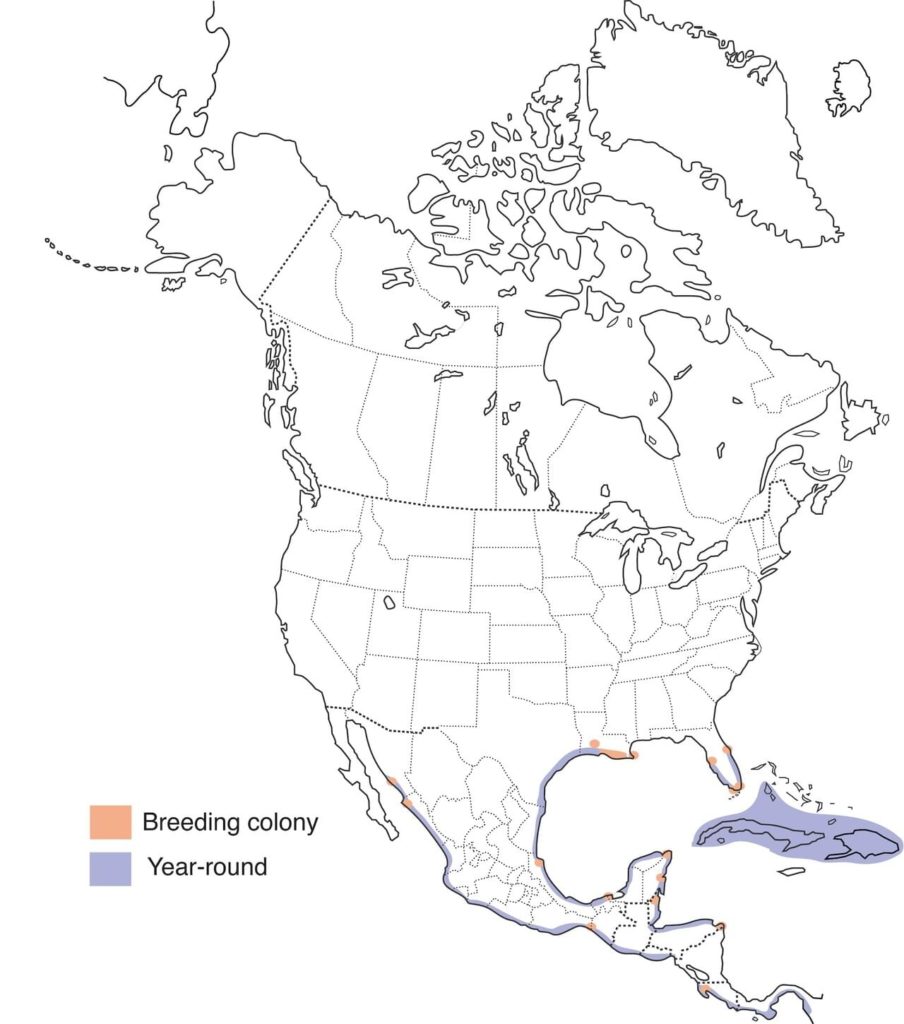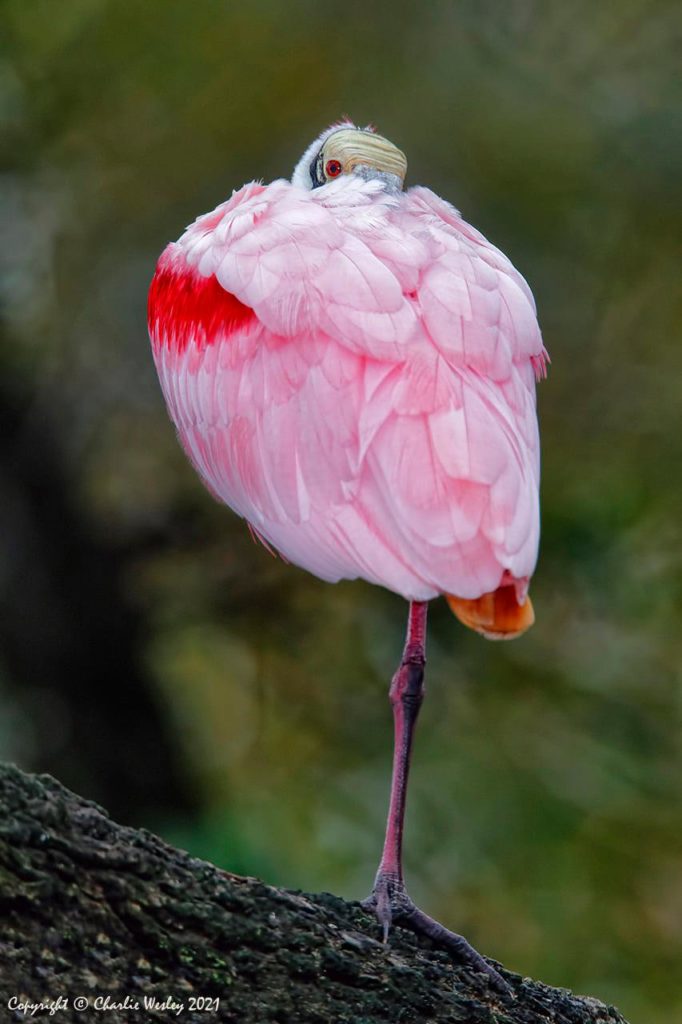by Doug Becker
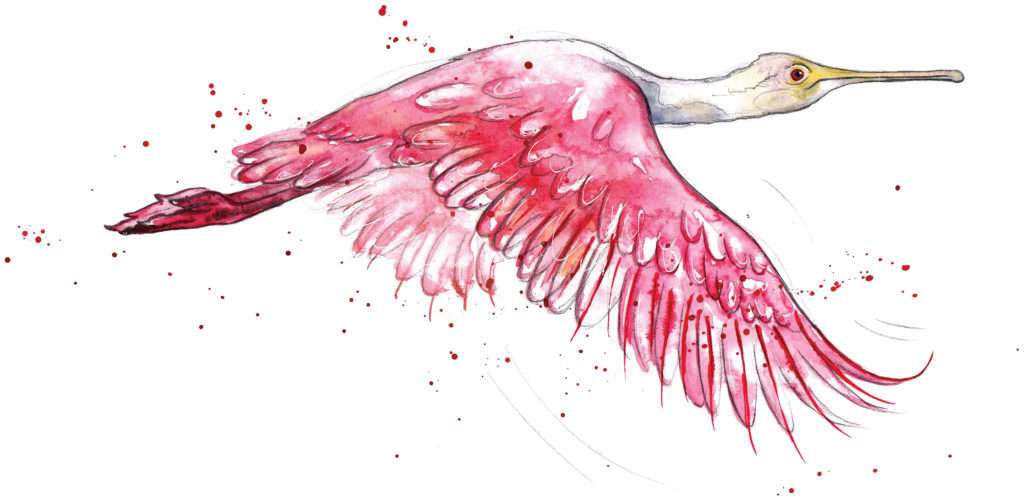
Living in Florida lets us see the Roseate Spoonbills up close and frequently. These large and dramatic, pink, shallow-water foragers are real eye-catchers for us and all our Florida visitors. No, they’re not flamingos, but they do stand out in a crowd as they forage with the egrets and ibises. Around the world, there are 6 spoonbill species, but the Roseate Spoonbills are the only species found in the Americas. Their range is limited to all the Florida shores, all the Gulf shores through Mexico and Central America, and down the west coast of Mexico. So, if you are a traveler to the sunny, southern shores, this is one exotic bird to know about.
Roseate Spoonbills are noted for their bright pink color, and their long bill that flattens out at the end to form a kind of spoon shape. Spoonbills forage for crustaceans in about 5 inches of fresh or salt waters. Like flamingos and some other shore birds, their diet of crustaceans and other aquatic invertebrates contain pigments called carotenoids that help make their feathers pink. They swing their long spoon-shaped bill back and forth feeling for food which is immediately caught and swallowed. These flamboyant and social shorebirds grab our attention as they group up to feed, keeping their football shaped body horizontal to the water. In flight, the Spoonbill is graceful with a long-extended neck, and long trailing legs similar to the cranes. These birds measure up to 34 inches in length and have a wingspan of up to 51 inches. Their extraordinary bill, partially bald head with red eyes, bright pink feathers, and long wading-legs entertain visitors to the southern shores, and the locals as well.
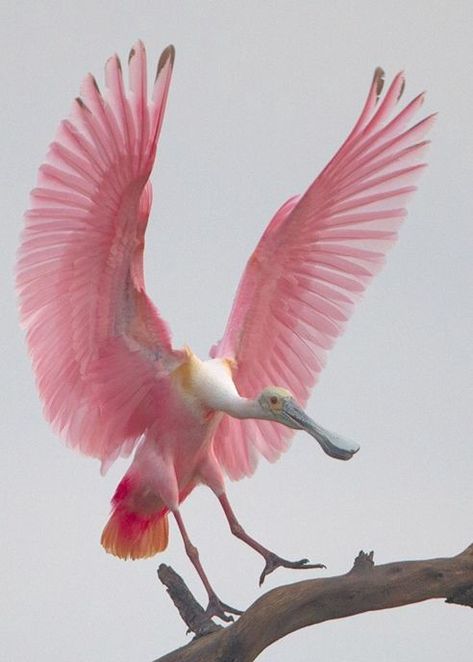
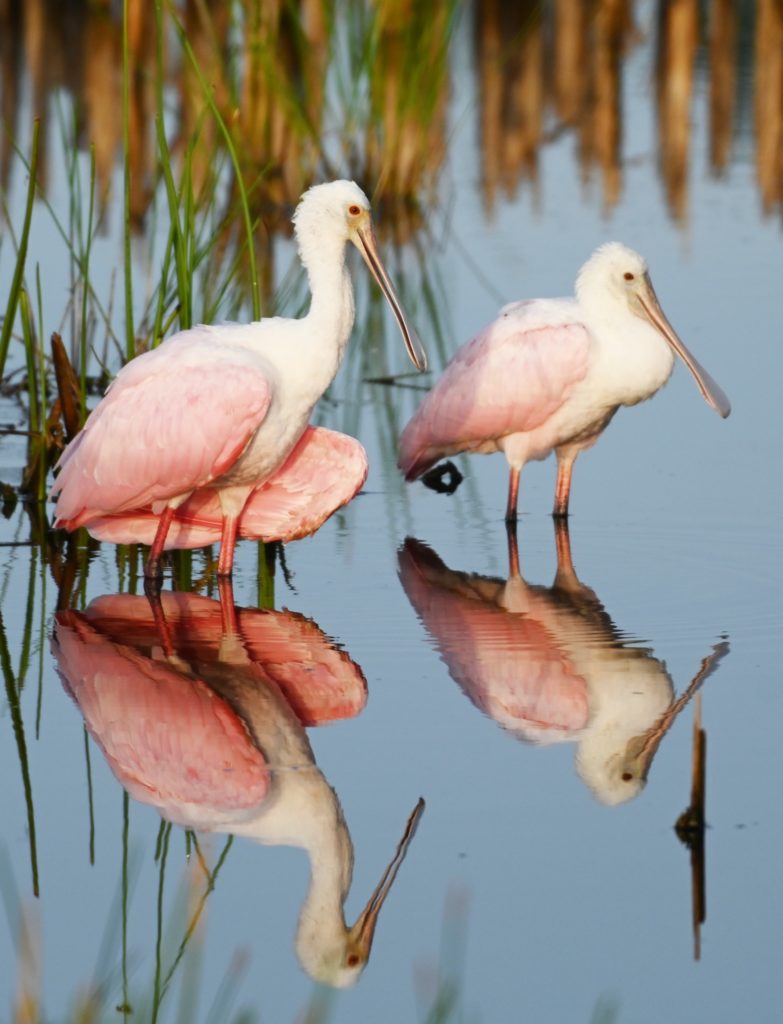
These beautiful birds nest in colonies with herons, ibises, and egrets, usually in the mangroves, Brazilian pepperbush, willow trees, and other shrubs near the water. They prefer nesting over the water, and seldom no more than 16 feet in the air. The male provides the female with larger sticks while she builds the nest platform. The platform is then lined with softer mosses and pieces of tree bark. When home is finished, it will measure about 22 inches across, and 4.5 inches deep. This is just the right size for Mom’s yearly brood of 1-5 eggs. Incubation period is 22 days, and nestling time is a lengthy 35-42 days. The young are pale in color, and their bill is yet to form it’s hallmark flattened-spoon shape. This will soon change. Their head is fully feathered, but this, too, will change. Just like us guys who lose hair over time, Roseate Spoonbills lose the feathers on their head as they age. Hmm, bummer!
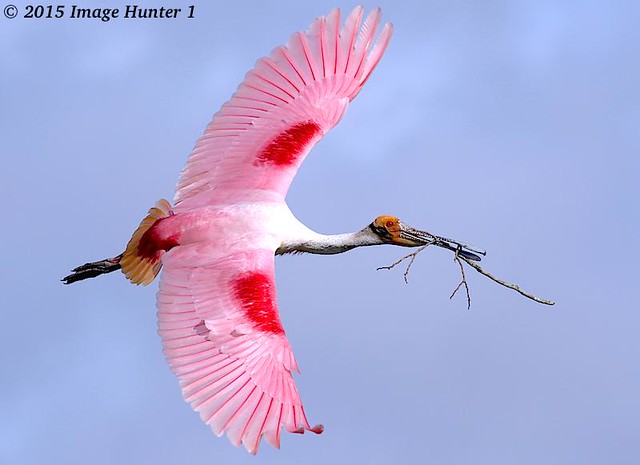
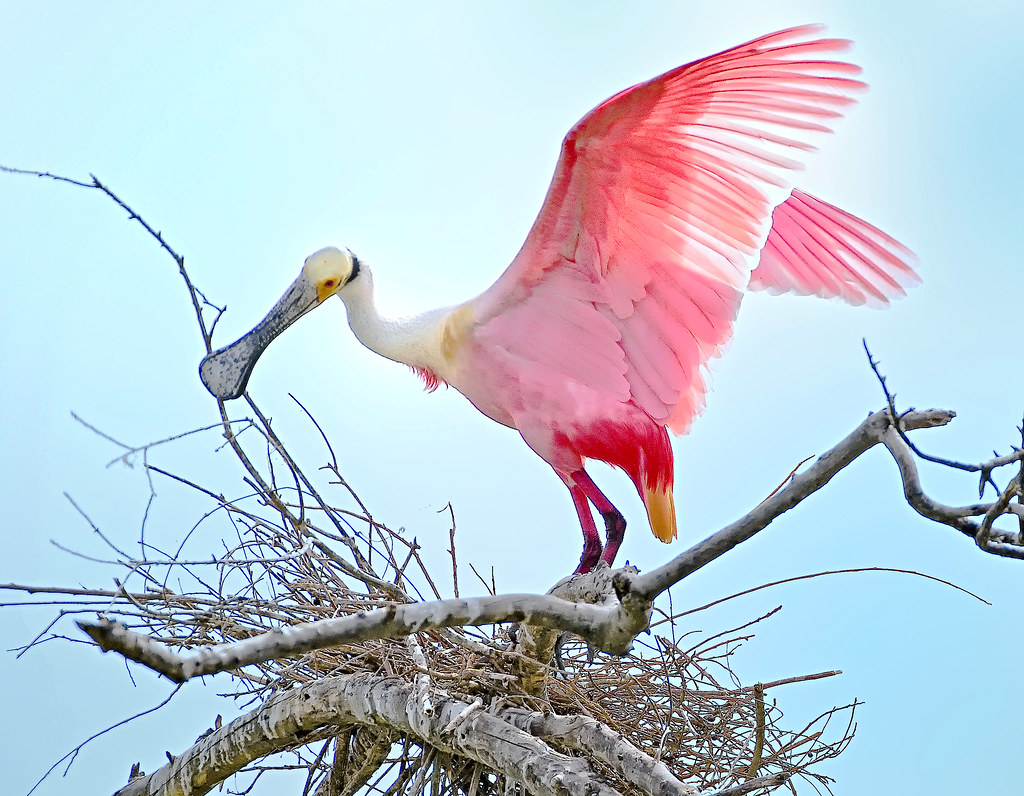
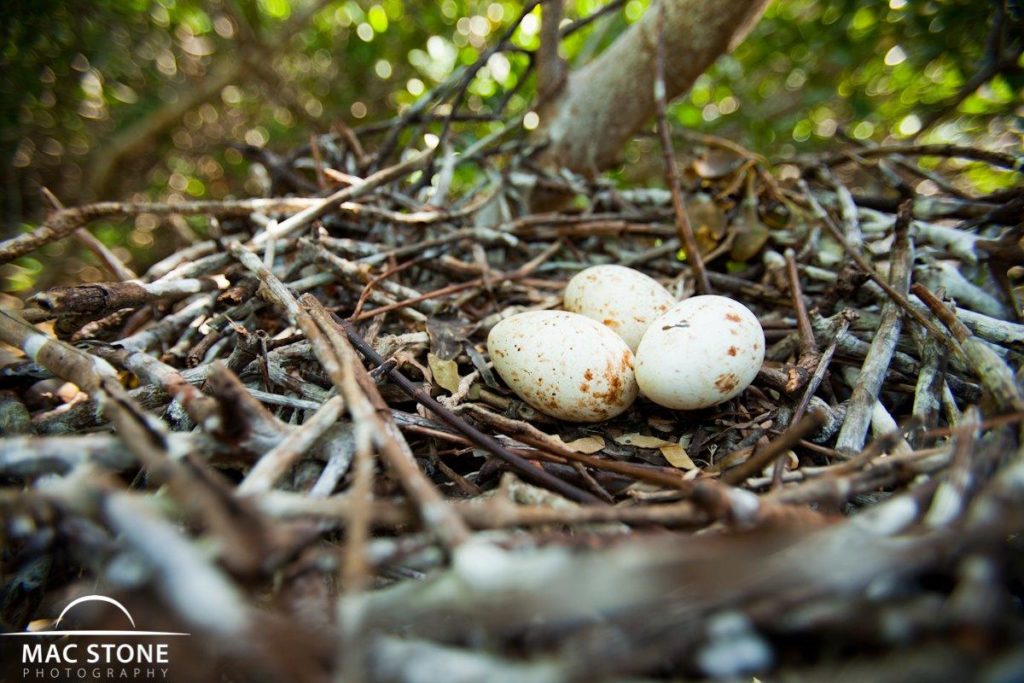
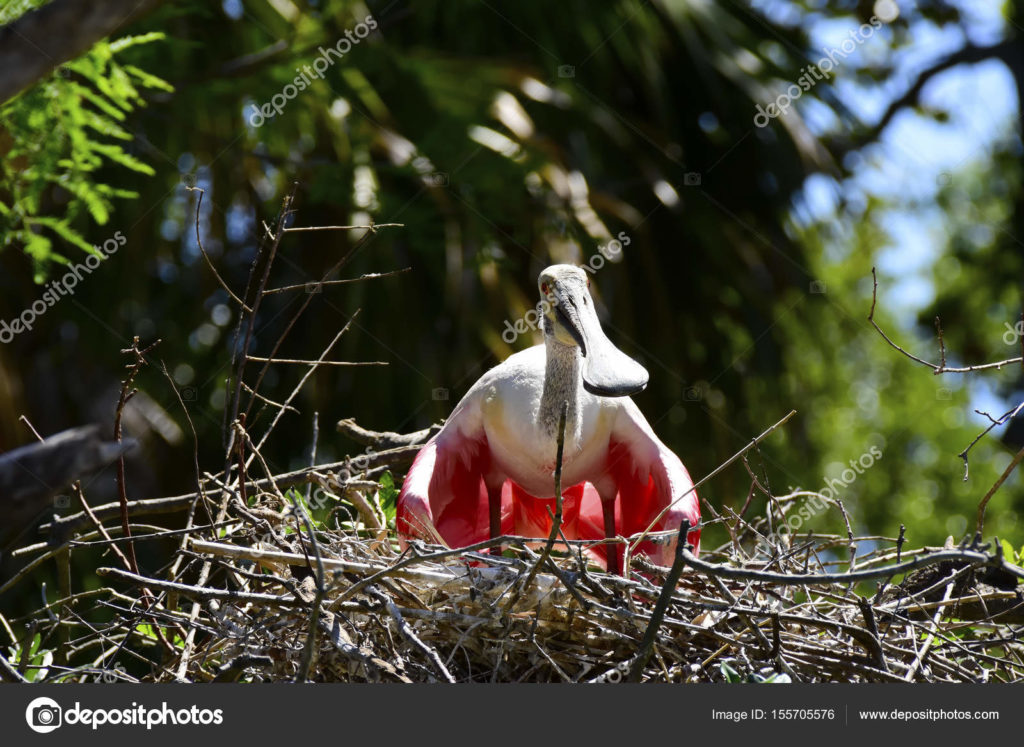
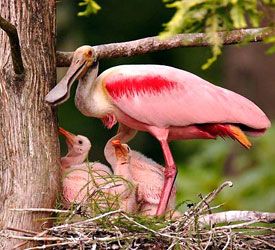
All birds have their own unique behavior. Here are some notable facts about Spoonbills. First off, a group of Spoonbills are called a “bowl”. Being very social, they will group up to feed in shallow waters. These can be groups of just a few, or as many as some 400 birds. When a group of Spoonbills fly over others foraging, the foragers will all stick their necks and long bills straight up into the air. This interesting posture is called “sky-gazing” and is fun to see. Back at the nesting colonies, the males will get the attention of the females by bobbing up and down and shaking twigs. When mates are selected, there may be some biting of the bills, and raising their wings well above their body. Quite impressive! Then, in final romance, the male will present more twigs to the female while holding them in his bill and giving them a good shake. Even after this heartfelt courtship, Spoonbills usually stay together for just one breeding season before moving on.
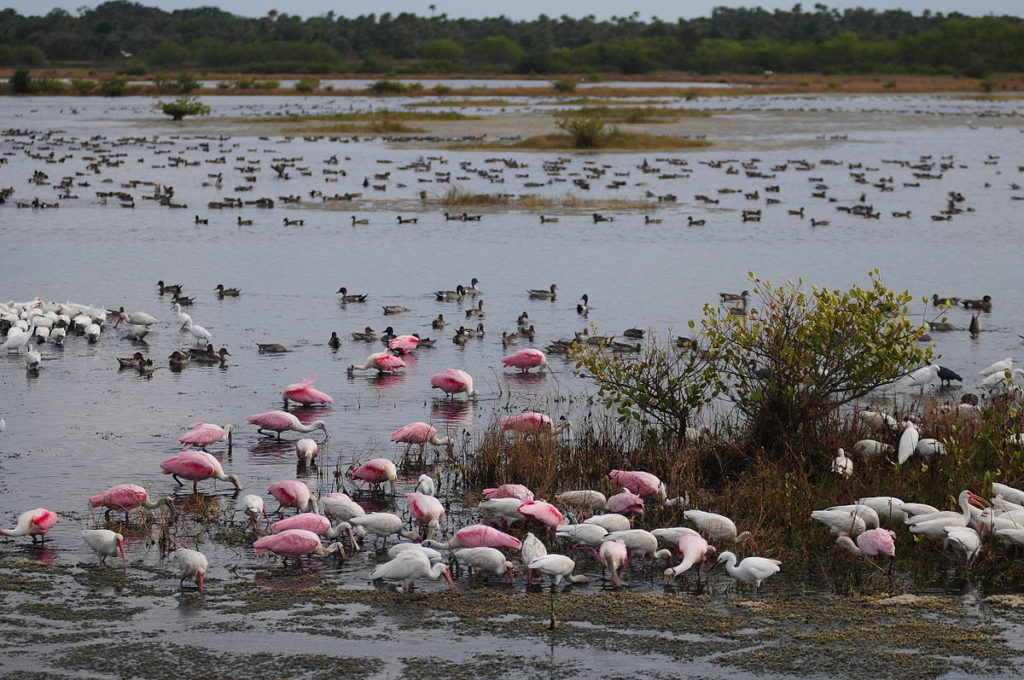
Just like what happened to so many other beautifully feathered birds during the 1860s, the feather trade for the well-dressed, upper-class diminished the Roseate Spoonbill population to almost nothing. After some conservation laws took hold in the early 20th century, colonies started to be seen in Texas and Florida. Today, there has been lots of recovery, but the Spoonbills remain vulnerable to degeneration of feeding and nesting habitat. Once again, it’s all of our responsibility to preserve and protect the nature around us.
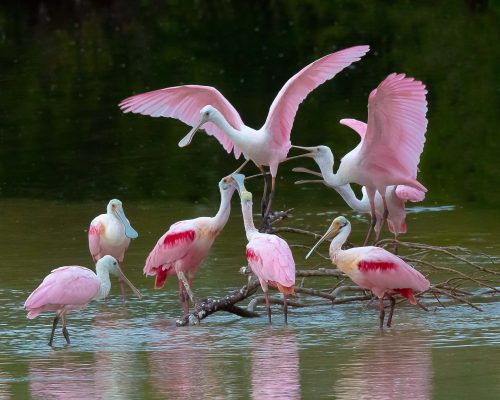
So, if you don’t live here, come on down to our beautiful Gulf and Atlantic shores and sandy beaches. We have wonderful hotels, remote campgrounds, and sport fishing where nature remains abundant. We have many spectacular birds of all kinds, and the bright-pink, Roseate Spoonbills will still steal the show! Don’t forget to pack your best birding binoculars and scope, some folding chairs and a great t-shirt and hat, and I’ll see ya out there!
